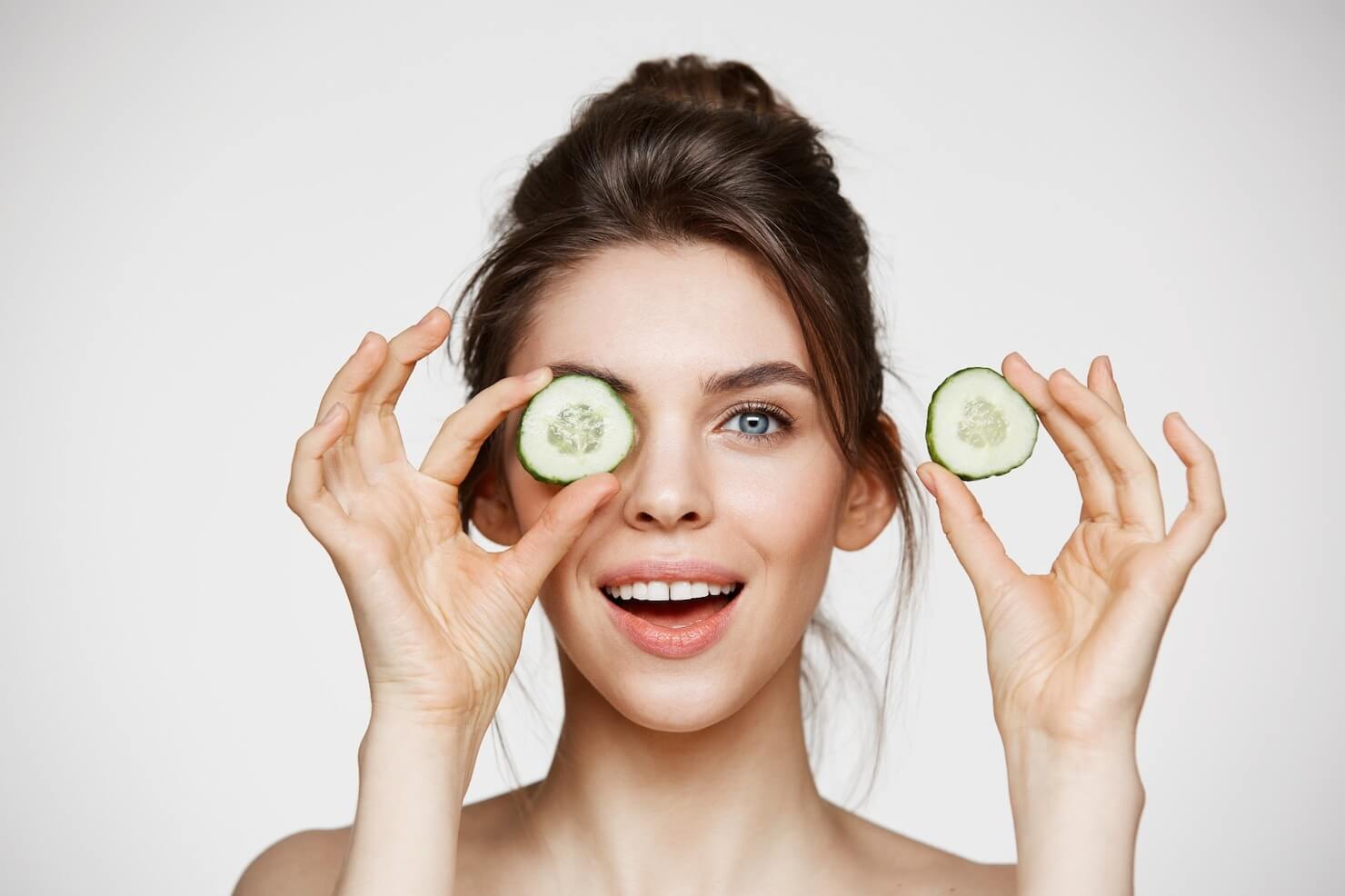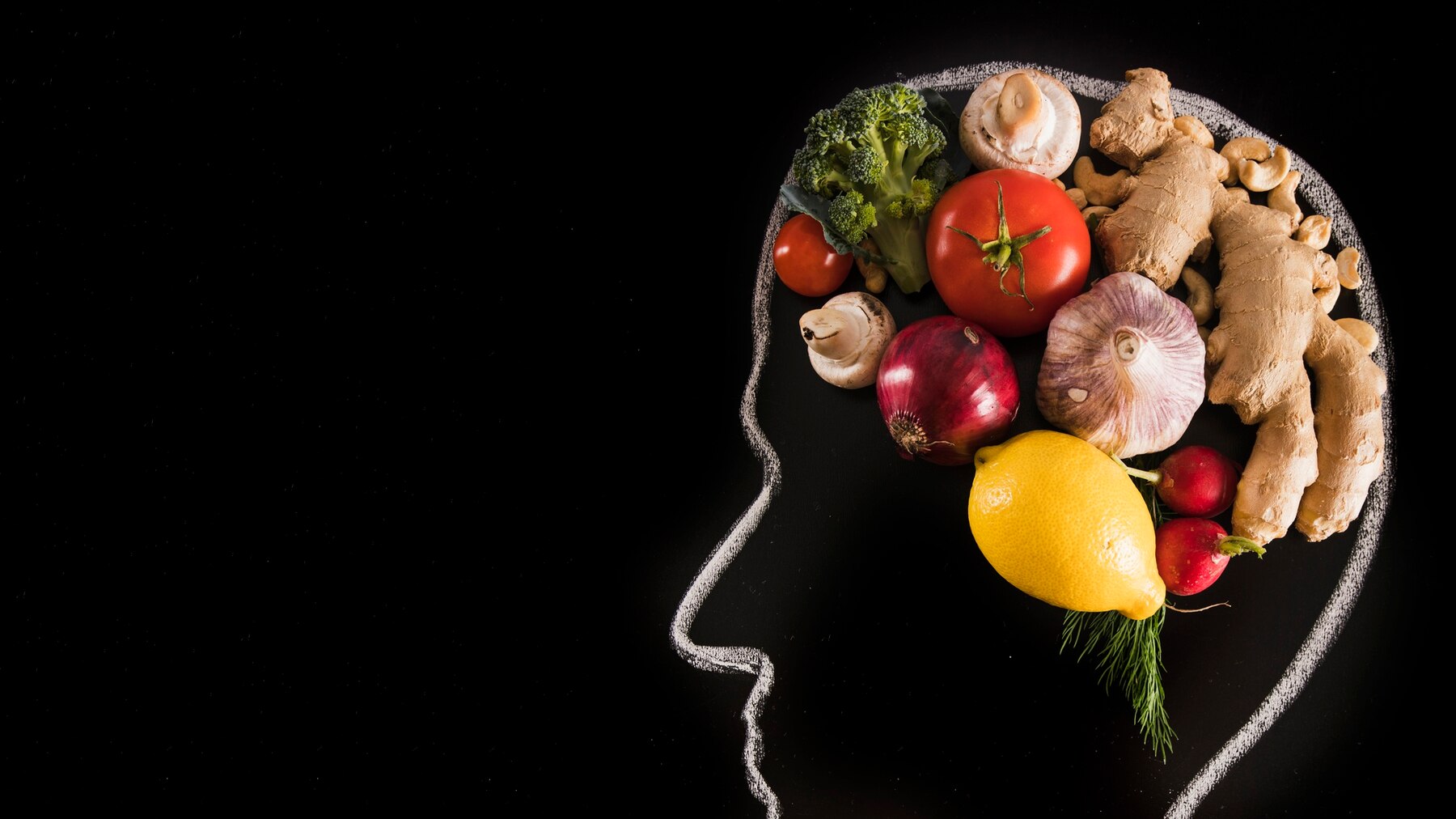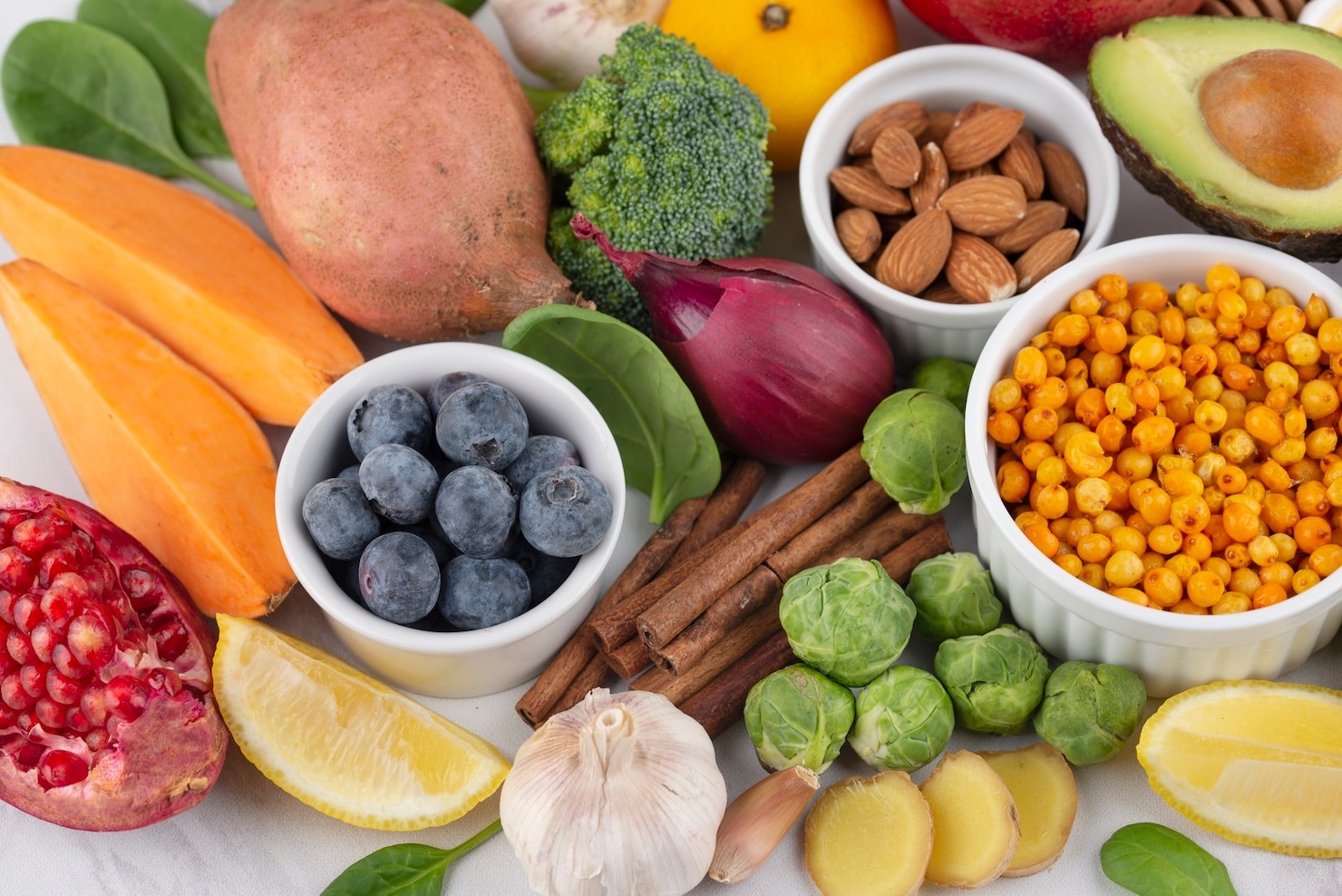When it comes to maintaining healthy, radiant skin, what you eat can be just as important as the products you apply to your skin. Nutrition plays a crucial role in skin health, influencing everything from hydration levels to skin elasticity, and even the rate at which you age. A balanced diet filled with essential nutrients can help prevent skin issues such as acne, wrinkles, and dullness while promoting a healthy glow.
In this article, we’ll explore how different nutrients contribute to skin health and what foods you can incorporate into your diet to achieve glowing, youthful skin. We’ll also address some common skin concerns and how your diet can help manage or prevent them.
How Nutrition Affects Skin Health
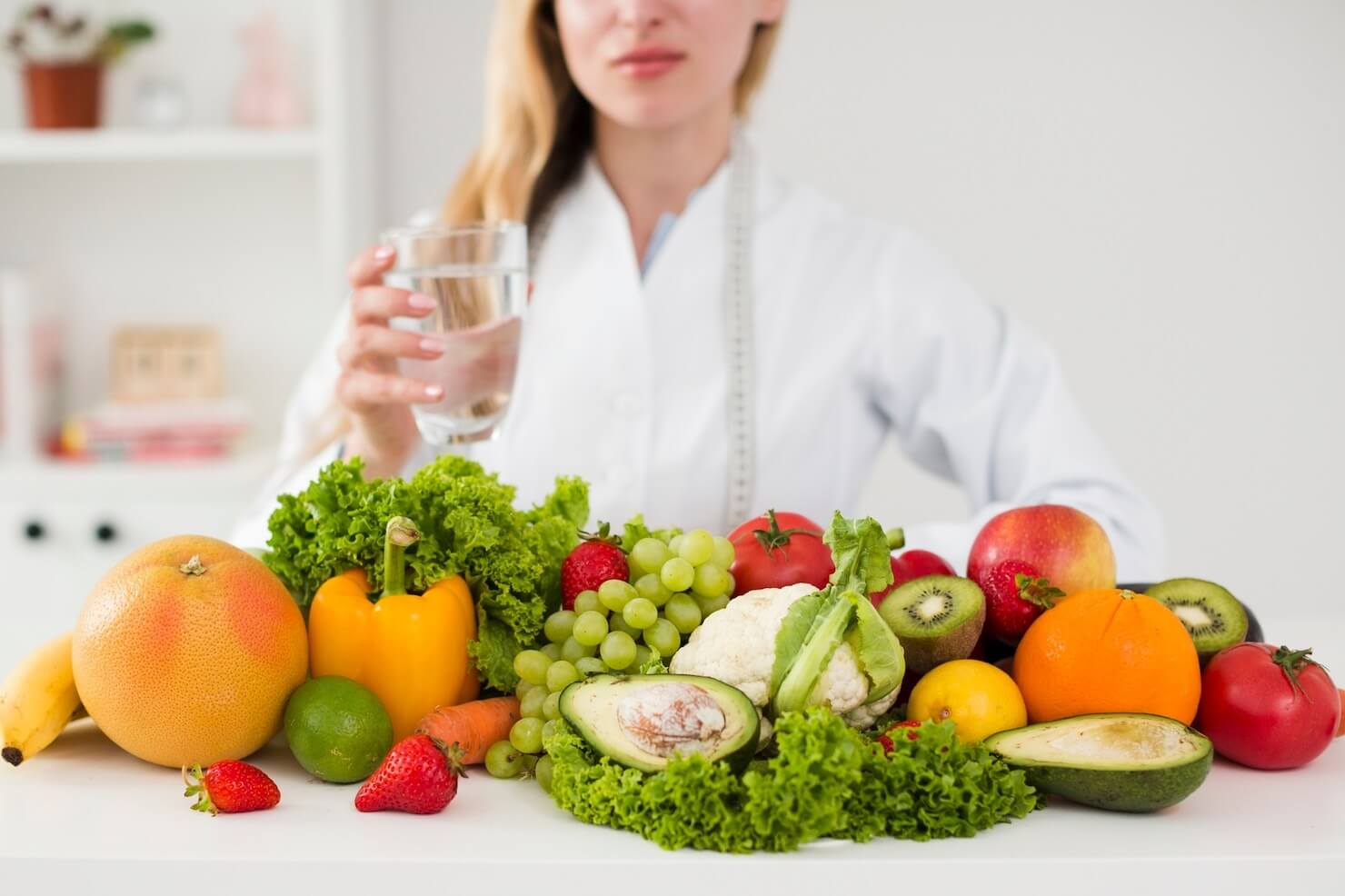
Our skin is the body’s largest organ, and like every other organ, it relies on nutrients from our diet to function properly. Poor nutrition can result in a range of skin problems, while a well-balanced diet can enhance your skin’s appearance and overall health.
1. Promoting Collagen Production: Collagen is a protein that provides structure to your skin, keeping it firm and elastic. As we age, collagen production naturally declines, leading to sagging and wrinkles. Nutrients like vitamin C are critical for collagen synthesis. Without adequate vitamin C, the body’s ability to produce collagen is compromised.
Foods that Promote Collagen Production:
- Citrus fruits (oranges, lemons, grapefruits)
- Bell peppers
- Berries (strawberries, blueberries)
- Leafy greens (spinach, kale)
- Tomatoes
2. Protecting Against Free Radical Damage: Free radicals are unstable molecules that damage skin cells, contributing to premature aging, dark spots, and even skin cancer. Antioxidants neutralize free radicals, protecting the skin from damage. Vitamins A, C, and E, along with selenium, are powerful antioxidants that help keep your skin looking youthful.
Antioxidant-Rich Foods:
- Carrots, sweet potatoes (rich in vitamin A)
- Nuts and seeds (rich in vitamin E)
- Brazil nuts (high in selenium)
- Green tea
- Dark chocolate (in moderation)
3. Maintaining Skin Moisture and Hydration: Your skin’s ability to retain moisture is vital for preventing dryness, flakiness, and irritation. Omega-3 fatty acids and certain vitamins like B3 (niacin) are crucial for maintaining the skin’s lipid barrier, which locks in moisture and keeps irritants out.
Foods for Hydration and Moisture:
- Fatty fish (salmon, mackerel, sardines)
- Avocados
- Flaxseeds and chia seeds
- Cucumber and watermelon (high water content)
- Almonds (rich in vitamin E)
4. Reducing Inflammation: Chronic inflammation is often linked to skin conditions like acne, psoriasis, and eczema. Anti-inflammatory foods rich in omega-3 fatty acids and antioxidants can help soothe the skin and reduce breakouts.
Anti-Inflammatory Foods:
- Olive oil
- Turmeric
- Ginger
- Walnuts
- Berries
5. Balancing Skin’s Natural Oils: A diet high in refined sugars and unhealthy fats can trigger an increase in oil production, leading to acne and other skin issues. Conversely, a balanced diet with healthy fats like omega-3s can regulate oil production and improve overall skin texture.
Foods That Help Balance Skin Oils:
- Fish oils
- Olive oil
- Whole grains
- Nuts and seeds
- Green vegetables
Nutrients Essential for Skin Health
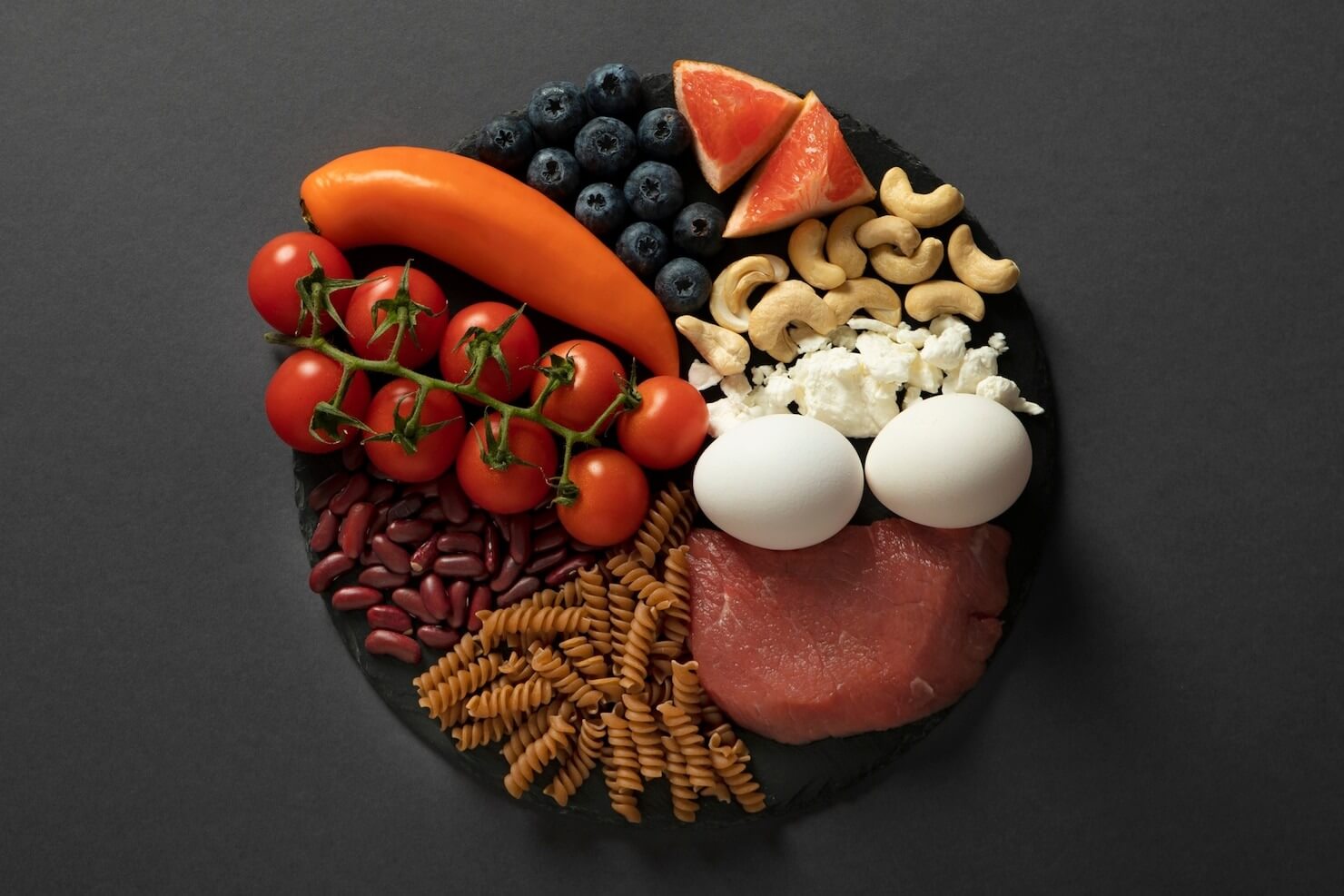
There are specific nutrients that play a critical role in skin health. Here’s a closer look at the key vitamins and minerals that keep your skin healthy and glowing:
1. Vitamin C: As mentioned earlier, vitamin C is crucial for collagen production and is a potent antioxidant that protects against sun damage. It also helps to brighten the skin and reduce hyperpigmentation.
2. Vitamin E: This antioxidant protects skin from oxidative stress and supports skin cell regeneration. It’s also excellent for moisturizing dry skin and is commonly found in skincare products.
3. Vitamin A: Known for its anti-aging benefits, vitamin A helps speed up cell turnover, which is essential for healing damaged skin and maintaining a smooth, even complexion. Retinoids, a form of vitamin A, are widely used in acne and anti-aging treatments.
4. Zinc: Zinc is important for healing damaged skin, reducing inflammation, and regulating oil production. It also supports immune function, which can help prevent acne breakouts.
5. Selenium: This mineral protects the skin from sun damage and oxidative stress. It works in conjunction with antioxidants like vitamin E to safeguard skin cells from free radicals.
6. Biotin (Vitamin B7): Biotin is a B-vitamin that helps maintain healthy skin by supporting the production of fatty acids, which nourish the skin and hair.
Foods to Avoid for Better Skin Health
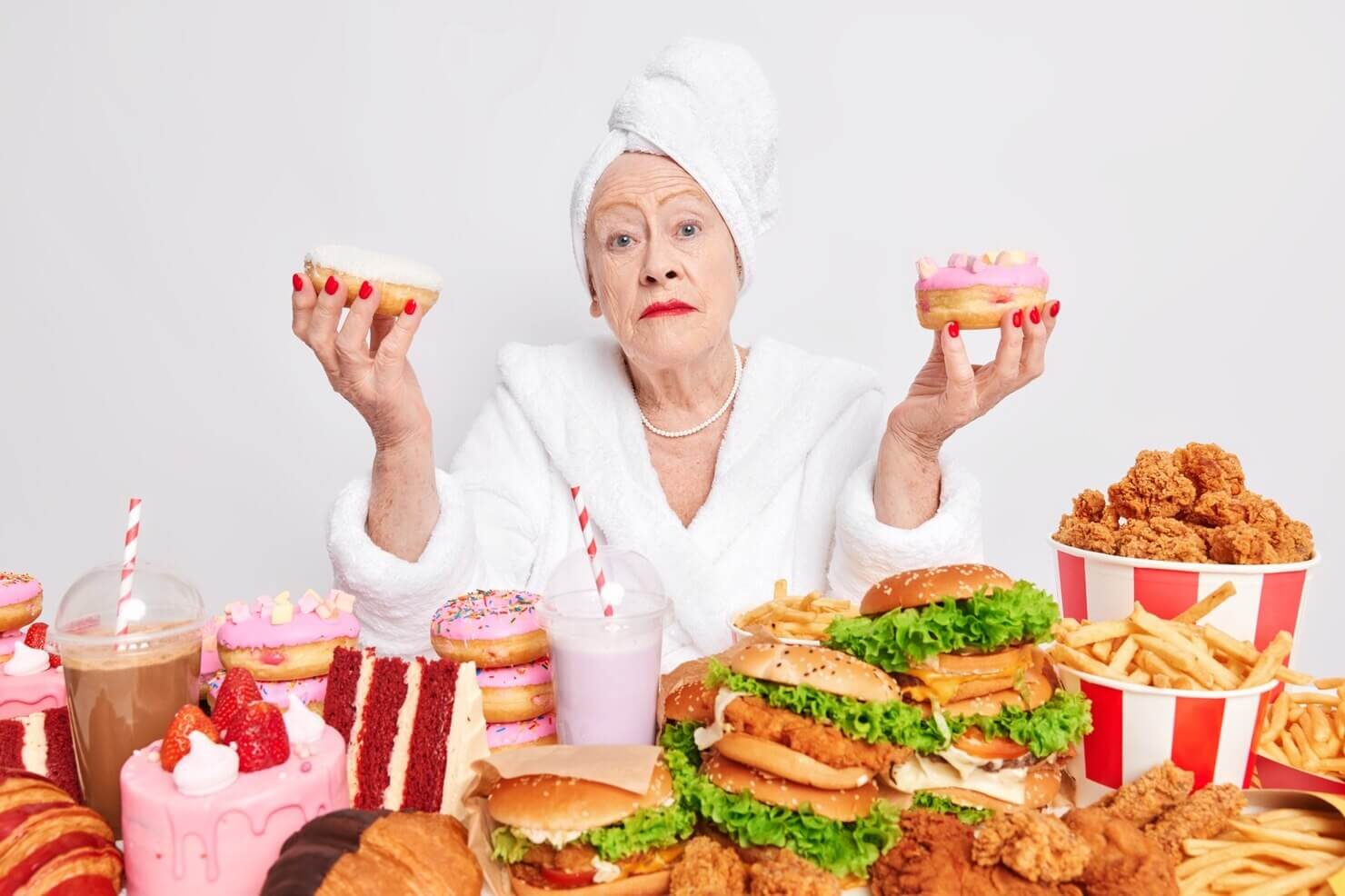
While there are plenty of foods that promote healthy skin, there are also some foods that can negatively impact your skin’s appearance and health:
1. Sugary Foods: High sugar intake leads to glycation, a process where sugar molecules damage collagen and elastin, causing premature aging, wrinkles, and sagging skin.
2. Dairy: For some people, dairy products can exacerbate acne due to hormones found in milk. If you suffer from persistent acne, consider reducing your dairy intake.
3. Processed Foods: Foods high in trans fats, refined carbohydrates, and artificial additives can increase inflammation, which may worsen skin conditions like acne, rosacea, and psoriasis.
4. Alcohol: Excessive alcohol consumption dehydrates the skin, leading to dryness, dullness, and an increase in fine lines. It can also exacerbate conditions like rosacea.
Common Skin Concerns and Nutritional Solutions
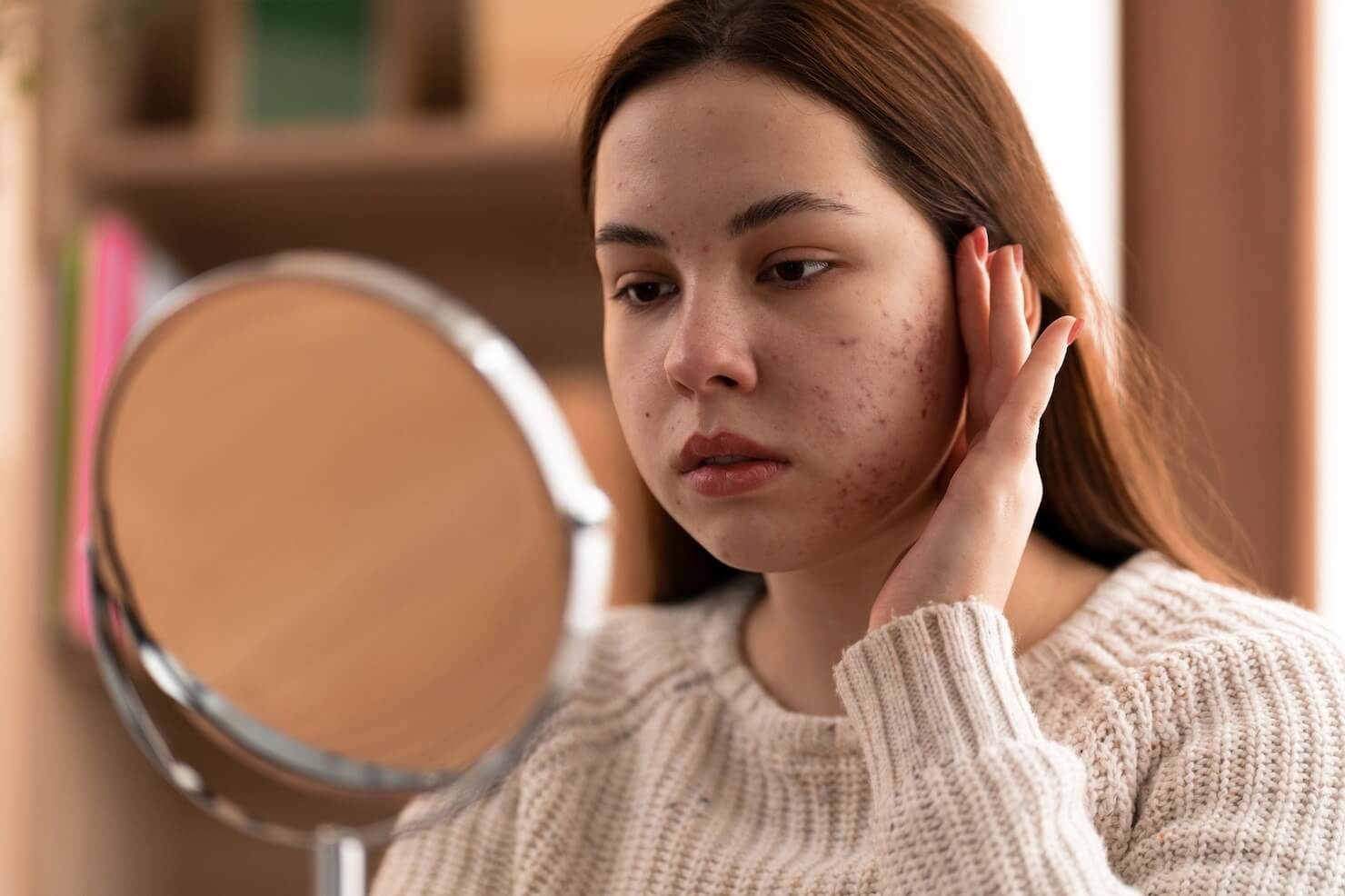
Let’s look at some common skin concerns and how nutrition can help address them:
1. Acne: Acne can be triggered by inflammation, hormonal imbalances, and excess oil production. Reducing your intake of sugary and processed foods while increasing your consumption of anti-inflammatory and antioxidant-rich foods can help.
2. Dry Skin: If you’re struggling with dry, flaky skin, make sure to include healthy fats in your diet. Omega-3 fatty acids, avocados, nuts, and seeds can help maintain the skin’s natural moisture barrier.
3. Wrinkles and Fine Lines: To prevent premature aging, incorporate foods that boost collagen production, such as those high in vitamin C and protein. Antioxidant-rich foods will also protect the skin from free radicals that contribute to aging.
4. Eczema and Psoriasis: Both of these skin conditions are often linked to inflammation. A diet rich in anti-inflammatory foods like fatty fish, olive oil, and leafy greens can help alleviate symptoms.
The Role of Hydration in Skin Health
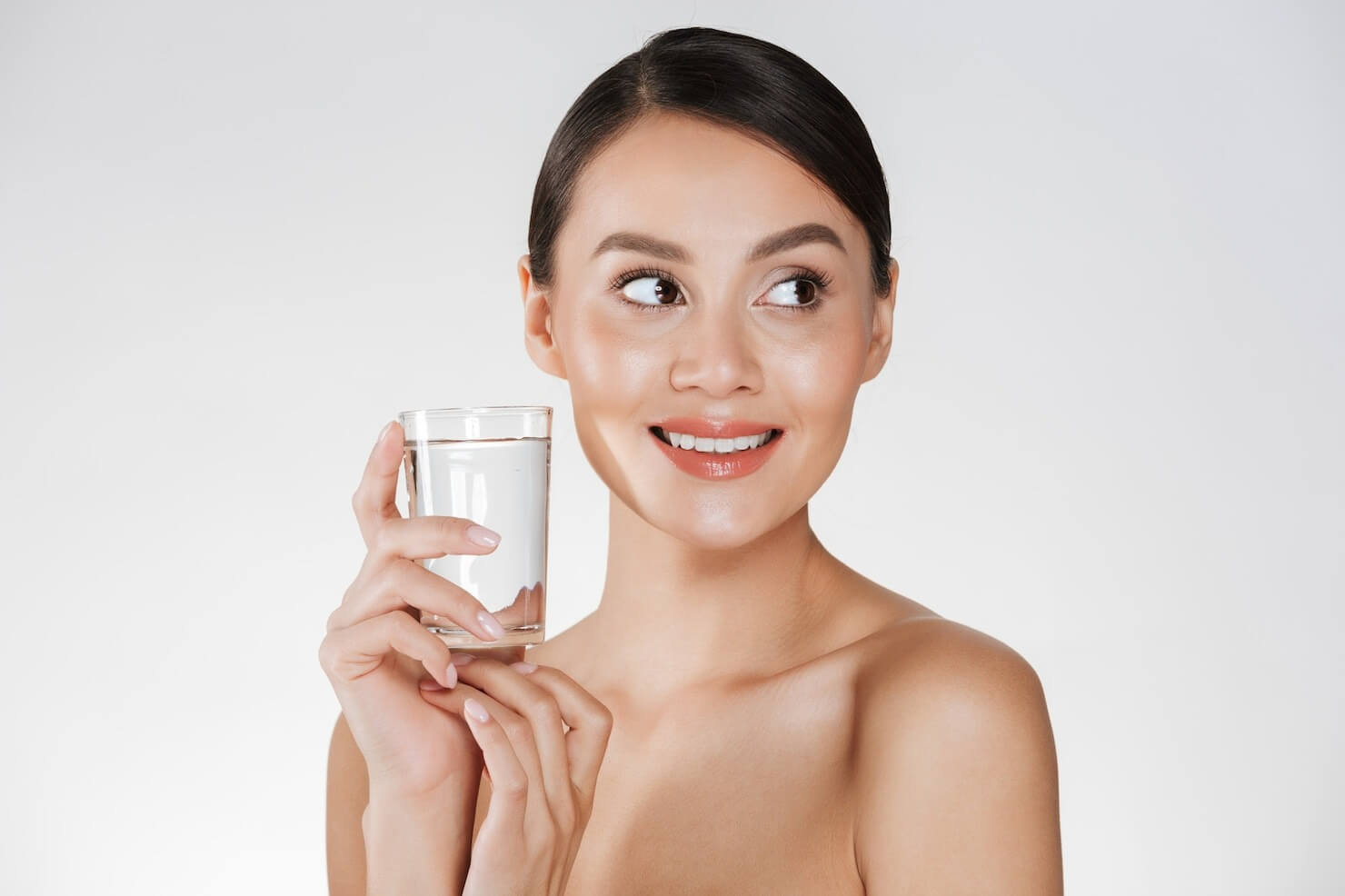
While food plays a major role in skin health, hydration is just as important. Water is crucial for keeping your skin hydrated and supporting its natural barrier function. Drinking enough water throughout the day helps flush out toxins and maintain the skin’s elasticity.
Tips for Staying Hydrated:
- Drink at least eight glasses of water per day.
- Eat water-rich foods like cucumbers, watermelon, and oranges.
- Limit alcohol and caffeine, as they can dehydrate the skin.
Conclusion
Your diet is one of the most powerful tools for maintaining healthy, glowing skin. By eating a balanced diet rich in vitamins, minerals, healthy fats, and antioxidants, you can support skin health from the inside out. It’s important to recognize that skincare isn’t just about applying the right products; it’s about nourishing your skin through proper nutrition as well.
Frequently Asked Questions (FAQs)
Q1. Can diet really improve my skin?
Yes, your diet has a significant impact on your skin’s health. Eating nutrient-dense foods rich in vitamins, antioxidants, and healthy fats can promote clear, hydrated, and glowing skin.
Q2. How long does it take to see changes in my skin after improving my diet?
You may start to see noticeable changes in your skin within a few weeks of adopting a healthier diet, though it can take up to 12 weeks for the full effects of dietary changes to appear.
Q3. What foods should I avoid for better skin health?
Limit your intake of processed foods, sugary snacks, and refined carbohydrates, as these can contribute to inflammation and breakouts. Alcohol and excessive dairy can also negatively impact skin for some people.
Q4. Can drinking water really improve my skin?
Yes, staying hydrated helps maintain the skin’s elasticity and supports its natural barrier function, which keeps it moisturized and free of toxins.
Q5. Do supplements help improve skin health?
While supplements can help, it’s always best to get your nutrients from whole foods. If you’re considering supplements like vitamin C, vitamin E, or collagen, consult with a healthcare provider to ensure they’re right for you.
By understanding the connection between nutrition and skin health, you can make informed dietary choices that promote not only glowing skin but overall well-being.

